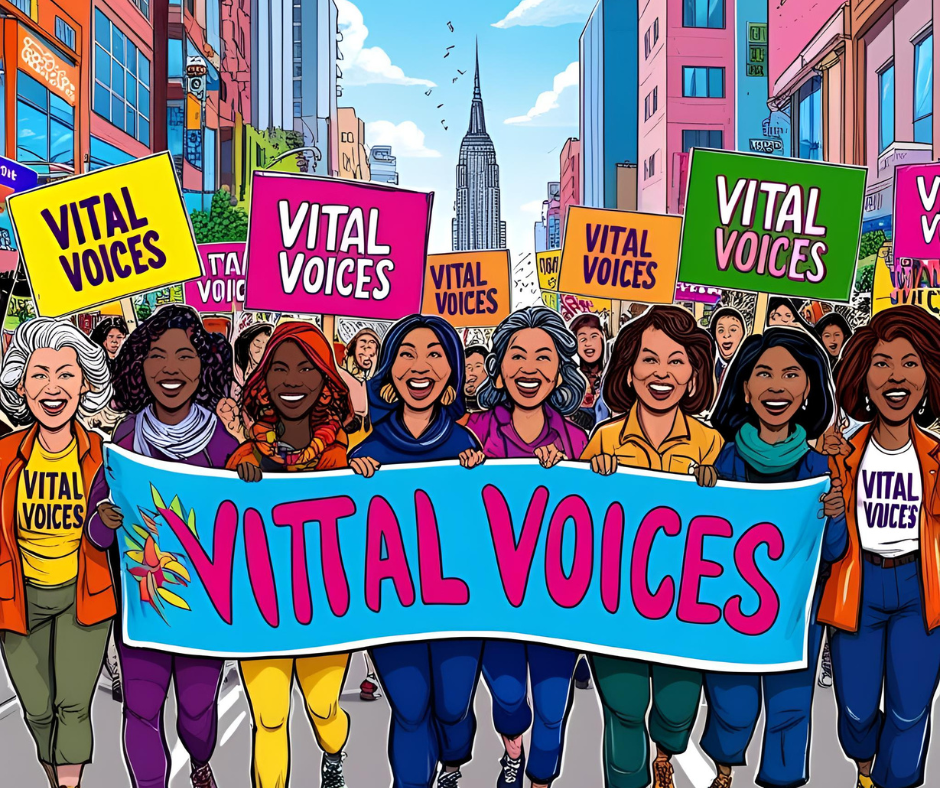I have a very distinct memory of when I was in 5th grade, 11 years old or so, in India. I had a test the next day but instead of studying, I was goofing off. My mother, who was particular about us doing well in our studies, was not pleased with me. I can still hear the frustration and urgency in her voice: “If you don’t study you will become a housewife.”
Recently, I was invited to lead a ‘Mentor Leadership Walk’ on International Women’s Day in Manhattan’s High Line. The theme was Shining-The-Light. And I was searching for an idea for the walk.
I had apparently told my story to my assistant Veronica at some point. She reminded me of my incident and added that in her own life, when she got economic empowerment, she noticed a change. Veronica, who herself runs a not-for-profit after-school program for Latino kids in Redwood City, has her own powerful story. She was a housewife raising her four young kids in Mexico City, but soon started volunteering in schools to teach young kids. And then was offered a paying position. That is when she got emboldened to do things that would have looked totally unachievable. There is more to her story, though it is hers to tell. I constantly seek her wisdom.

My mother’s words,”‘If you don’t study, you will become a housewife”’, made me promise to myself I would never let that happen to me. My mother had an undergraduate degree in English literature. Back in India, in those days, she was far ahead of the times. Yet she did not work. My father, an engineer, was the sole earner of the family. That was normal. Women did not work outside the house (however, in lower-income households, women had to work and still do). I suspect she did not feel equally valued in her relationship, perhaps because she did not bring income home.
When you are a woman, money matters: If you don’t contribute to the economy by working, your voice does not count. If you don’t strive for promotions and recognition, you get relegated to lower-paying jobs, repetitive and boring. Those are the problems women face today.
Economic independence gives us the freedom to make life choices, even when balancing work and family can be challenging. I cannot speak as meaningfully to this as I am from a privileged class. But Veronica is not. She was able to rebuild her life after her divorce, in a more meaningful way, because she started making money as a teacher, she says.
As I look back at my life, my mother’s words apparently invoked what to aim for. Girls are delivered mixed messages. These are encouraged to excel in schools and to compete with boys. As a result, they get admitted to great colleges. But then, in some form are told “Be sure to fetch a husband”. Does it mean get educated just incase faced with divorce or widowhood? They don’t quite know if they will follow the same path as their mothers.
In contrast, we raise boys with a singular expectation: they must work and earn money. How to handle relationships and parenting is expected to come organically, and to be dealt with by the wives they must find. Their only worry is to do well in school. A singular focus is very valuable in early life when one is trying to make sense of the world.
As I reflect back, it is the process of competing that has shaped me and opened my eyes to how I can learn and grow. I have experienced healthy competition all my life: today when I play bridge, in my career when I was an entrepreneur, at university when I was an engineering student applying for jobs, and even in my childhood, because I was encouraged to focus on my studies and perform well academically, even as a young girl. My comfort with competition is what has giving me choice and freedom in my life.
As a result of those frustrated words from my mother— and they were not the only ones—I was able to support my parents in their old age until their death. They both came to America, where they had sent me to study, even though it drove their bank balance to zero. I became an engineer and came to the US so that I could make money to support myself and others. It was not easy, but it could have been much harder if I did not feel economically empowered.
When women are economically empowered, everyone wins. Working mothers can be strong role models for their children, and kids grow up watching both of their parents contribute in meaningful ways. This also allows fathers to be engaged in raising kids, and the pressure to provide does not fall on their shoulders alone.


11 responses
Excellent commentary, Vinita! Great points shared in your reflection! So appreciate you!
Gay Krause
Your mother was ahead of her time and her generation. I was lucky as I didn’t get that same message from my mother, but what she did always looked very boring to me. I knew I didn’t want to do that.
This is a fantastic share from your own story to real world application of impact! Thank you for sharing this richness and learning from your journey. My favorite line that aligns with me is “when women are economically empowered, everyone wins”. You also mention working mothers as role models and I often reflect on the power of that role for children and our collective future. A good friend said to me once, every human that walks the planet currently and has in the past was brought into the world by a mother – that got me to think – wow!
Love the post! My grandmother always said make your own money, then you are free and can marry for love!
“When women are economically empowered, everyone wins.” Are you sure? Women are biologically fragile as compared to men. So many women go through painful periods every month. In marriage, household duties from cooking to managing homes remain her responsibility. Maintaining relations is her responsibility. Then she becomes pregnant. How many get support, let alone that delivery breaks her bones for once, or twice, or more times. She takes it upon herself to raise children. Whenever a husband pitches in, he gets a gold medal. The woman ends up with criticism and judgment. Where is the empowerment you are looking at?
Right on! Women have gained the vote and can hold property, and go to college in most lines of study, and some other privileges, but we are still not equal in the eyes of many. Not equal in salary is a problem, and has been so for along time, but it should be eliminated by now!
My mother never overtly expressed that not studying would result in a lack of financial autonomy. Nonetheless, her unspoken expectations, actions, and desires were apparent. I detected pride in her eyes when interacting with professional women, which inspired me to study, become self-sufficient, and make her proud of me.
It wasn’t long ago when China implemented the one child policy to control a rapidly growing population. But now China has reversed that policy because of a collapsing birth rate and its severe impact on the economy and the social order.
A similar thing could happen with women’s economic empowerment which has dramatically reduced the birth and fertility rates everywhere. But the falling fertility rate will not stop at the optimum level of 2.1. It is headed towards 1.0, and even lower in some countries.
As women get better education and jobs, they also want higher salaries, stock options, and promotions. So they often need to (or want to) work long hours. The result is that many women can’t realistically have/raise kids while pursuing such a career path. As Indra Nooyi says, the biological clock and the career clock are in direct conflict.
Nature (evolution) did not make men and women equal. It made them unique, different, and complementary. Any human attempt at defeating this design of nature will cause short-term problems like low birth rates, school closures, economic contraction, etc. In the long term, it is a sure path to demographic and cultural extinction (relative to cultures where women have more traditional roles).
Working full time and, either having no kids, or having their kids raised by other women, should not be the only respectable options for women. One of the greatest achievements of your mother, Vinita, was raising you to be the person you are today. I somehow doubt that you would have been the same person if your mother worked full time and you were raised by a nanny.
Another was of looking at it, Vijay. The excitement of accomplishing something, is equal in men and women. Its the opportunity, that women want.
Vinita, it is true that in your mother’s generation, women were denied the opportunity to pursue a serious professional career. However, in your generation, women had both options available to them. They could stay home and raise great kids or pursue a career. Then in your daughter’s generation, the pendulum swung fully to the other side. Now women no longer have an honorable option to stay at home and raise kids. Society looks down on them and even husbands are socially conditioned to devalue their contributions at home.
I am arguing for the pendulum to swing back to the middle so that the contributions of women are valued highly in whatever role they choose for themselves–at home or outside. Perhaps one way to do so would be to pay housewives for their work at home–at professional rates for nannies, cooks, etc.
Could not agree more, “the contributions of women are valued highly in whatever role they choose for themselves–at home or outside”